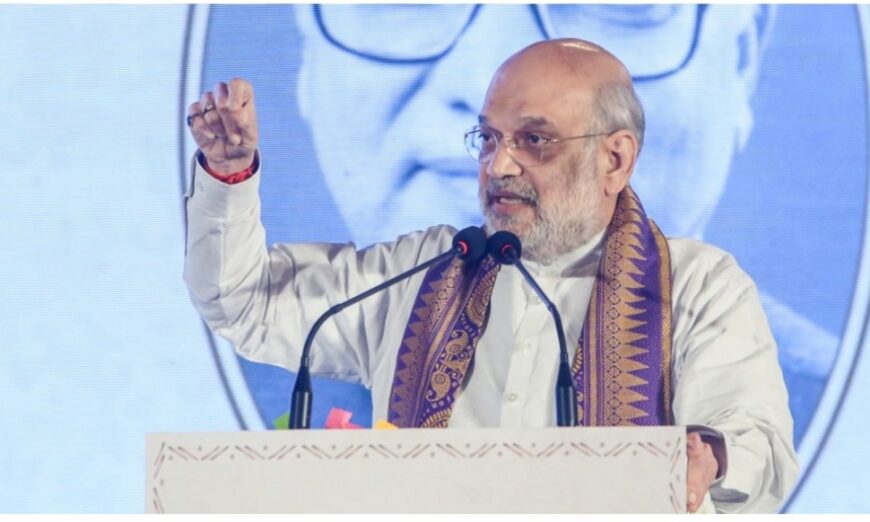Union Home Minister Amit Shah on Friday delivered the ‘Narendra Mohan Memorial Lecture’ in New Delhi on the theme ‘Infiltration, Demographic Change, and Democracy.’ He also graced the Jagran Sahitya Srijan Award Ceremony as the chief guest.
Addressing a distinguished gathering, Amit Shah underscored that infiltration, demographic change, and democracy are deeply interlinked issues crucial to the security of India’s borders, culture, language, and national identity. He urged citizens, especially the youth, to understand and engage with these challenges to safeguard India’s unity and independence.
The Home Minister cited census data from 1951 to 2011, noting that while the Hindu population declined from 84% to 79%, the Muslim population rose from 9.8% to 14.2%, attributing the disparity primarily to infiltration rather than fertility rates. He said infiltration from neighboring countries such as Pakistan and Bangladesh had significantly altered demographic patterns in border regions.
Shah contrasted the sharp decline in the Hindu population of Pakistan (from 13% in 1951 to 1.73% today) and Bangladesh (from 22% to 7.9%) with India’s inclusive constitutional framework, under which every citizen enjoys religious freedom. He stated that many Hindu, Sikh, Buddhist, and Christian minorities, persecuted in these countries, sought refuge in India.
Emphasizing the difference between refugees and infiltrators, Shah said, “Refugees come to India to protect their religion, while infiltrators enter illegally for economic or other reasons. India is a nation, not a dharamshala—our borders cannot remain porous.”
He reiterated that granting citizenship to persecuted minorities from neighboring countries was a promise made after Independence, which Prime Minister Narendra Modi fulfilled through the Citizenship (Amendment) Act (CAA). “The CAA does not take away anyone’s citizenship; it grants citizenship to refugees who were denied it for generations,” Shah said, adding that the law corrected “historic wrongs committed between 1951 and 2014.”
Calling the partition of India on religious lines a grave mistake, Shah said it was not decided by Parliament but by the then ruling party, which caused generations of suffering. “By introducing the CAA, Modi ji has atoned for these mistakes,” he remarked.
Highlighting demographic concerns, Shah pointed out that Muslim population growth in Assam (29.6%) and border districts of West Bengal (up to 70%) indicates large-scale infiltration. He warned that unchecked infiltration affects not only national security but also local governance, tribal populations, and economic opportunities for India’s poor.
Shah reiterated the Modi government’s three-point anti-infiltration policy — Detect, Delete, and Deport — to identify infiltrators, remove them from voter lists, and ensure deportation. He also defended the Special Intensive Revision (SIR) of voter lists, calling it the Election Commission’s constitutional duty to maintain free and fair elections. “When infiltrators enter voter lists, they influence national decision-making, and democracy is weakened,” he said.
The Home Minister further announced the government’s upcoming High-Powered Demographic Mission, which will study the impact of illegal migration on religious, social, and demographic patterns, as well as the burden on border management.
Shah concluded by asserting that India is a geo-cultural nation, not merely a geographical one, and protecting its cultural integrity requires collective responsibility. “Every Indian must understand that infiltration is not a political issue but a national one,” he said, calling for united action to preserve the country’s security and democratic fabric.

